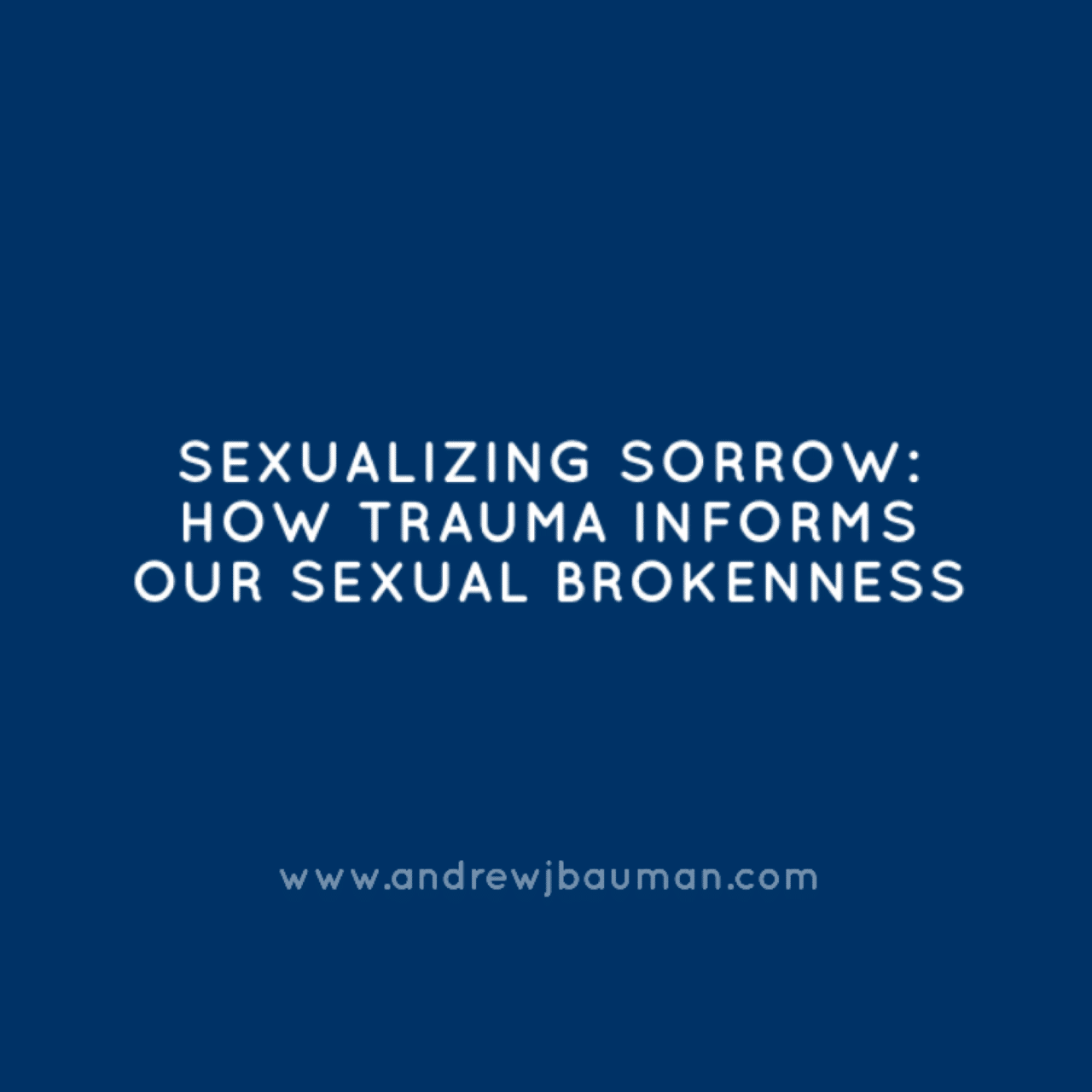This is an excerpt from my book, The Sexually Healthy Man
For us to break free from our unwanted compulsive behaviors, we must have the courage to delve deeper into our woundedness and explore what lies beneath it. We must begin to kindly yet decisively cut out the roots of our sexual acting out. To do this, we must first gain an understanding of how we are prone to sexualizing our heartbreak in an effort to bring comfort to our trauma and pain.
Tom was in his mid-forties, never married, but had been heroically facing the dark shadows of his past out of control sexual behaviors. He had finally been completely truthful with himself, his close friends and his extended family, about the dark road he had traveled. After some time of sobriety had passed, Tom agreed to sit down with his mother after she expressed her desire to have a more open and authentic relationship with him. She explained that she wanted to be a “safe place” for Tom to talk through his pain. The invitation sounded nice, but Tom had done enough emotional work to be able to discern that this invitation might not be as innocent as it sounded, and very well may come at a deep cost to his own health and heart. Tom desired to be closer to his mother, but in the context of love, honor, and respect—not to be devoured or treated as her surrogate spouse.
Nevertheless, Tom decided to give her invitation a try and began to share more in-depth about the last couple of months of his healing journey. As he spoke, he noticed his mother’s body becoming increasingly more agitated. The tempo of her questions quickened, and there was far less curiosity. Her anxiety became increasingly distracting. It began to feel like her questions were more for her sake than his. When he realized what was happening, Tom shifted from sharing his heart and vulnerability to his years of loneliness and isolation and began to inquire more about his mother and her life. It became abundantly clear that she, once again, expected him to care for her. Their talk about Tom’s heroic journey had simply been the means to her own ends; they were really there to talk about her.
Sadly, this dynamic had played out in their relationship for Tom’s entire life. He always longed to be truly seen by his mother, for there to be enough space in the relationship for him to not be okay. He struggled under the burden of taking care of her emotions, (his dad left the family when he was only four years old). His mother had unconsciously used his emotions to soothe her own. What Tom needed from his mother was to be well differentiated enough for her own emotional world not to be tied up in his. Their enmeshed style of relating is what propelled him into sexually compulsive behaviors.
When emotional enmeshment, also known as triangulation or emotional incest, is present—especially from mother to son—an unconscious longing for full consummation takes place. This isn’t as outlandish as it sounds, and here’s why: in enmeshed relationships, our mothers overtake all of our emotional needs, but not our sexual needs. If my mother fills me emotionally, the logical result is that I seek something that completes that one remaining missing piece: my sexual needs. Since I am already filled emotionally, I have no other space for anything even remotely emotional, so I will seek a source of sexual fulfillment with minimal emotional ties or commitment. Pornography and other emotionless, compulsive sexual behaviors become the perfect solution to an otherwise daunting problem. I can feel whole (even though I am completely fractured) because through those two relationships—porn and mother—I can feel normal again. I am filled both sexually and emotionally.
So, back to Tom and his mother. A reenactment is taking place which could be a real trap for Tom. On one hand, he desperately desires healthy love and support from his mother during an incredibly difficult season, yet because of his mother’s lack of emotional awareness and unconscious attempts at healing her wounds through her son, Tom must withdraw from the current dynamic. There is no way that he will ever be enough to fill her broken places (it hasn’t worked over the last 40 years of his life why would it begin now?). For him to continue on his path toward sexual health he must continue to hold firm to his boundaries in his relationship with her. The alternative is that he is emotionally devoured by her, and will become more prone to act out again in an effort to soothe himself. He can show care to his mother, but care looks like directing her to other resources outside of himself, like a good therapist, a support group, or a really good book.
It’s no surprise that later that night, after the conversation with his mother, Tom ate more food than normal and had a second helping of dessert, and began to feel a sexual desire for exhibitionism that he had never felt before. Exhibitionism is the act of exposing one’s genitals out in public—in an effort to be seen! This is a perfect example of sexualizing sorrow, Tom is unconsciously heartbroken that once again his mother has invited him into the potential of being seen, and then completely missed him and made it all about her. His sorrow; his longing to be seen by his mother, then becomes sexualized: feeling the desire to expose himself in public. This has nothing to do with his depravity and everything to do with the sexualizing of his sorrow.
Tom’s objective will be to grieve the fact that he has never been able to be fully himself in his mother’s presence, and that he has never been fully loved, cared for, or seen by his insecure and wounded mother. He must differentiate from his mother, and continue to be rooted and centered in his deep goodness. If he can refrain from judging his sexual urge for exhibitionism, but instead be curious about it, he can begin to get to the roots of his wounding and sorrow, boldly grieve, and remove the fuel that powers his compulsive sexual behaviors.
Will You Support My Work? Buy Me a Coffee






